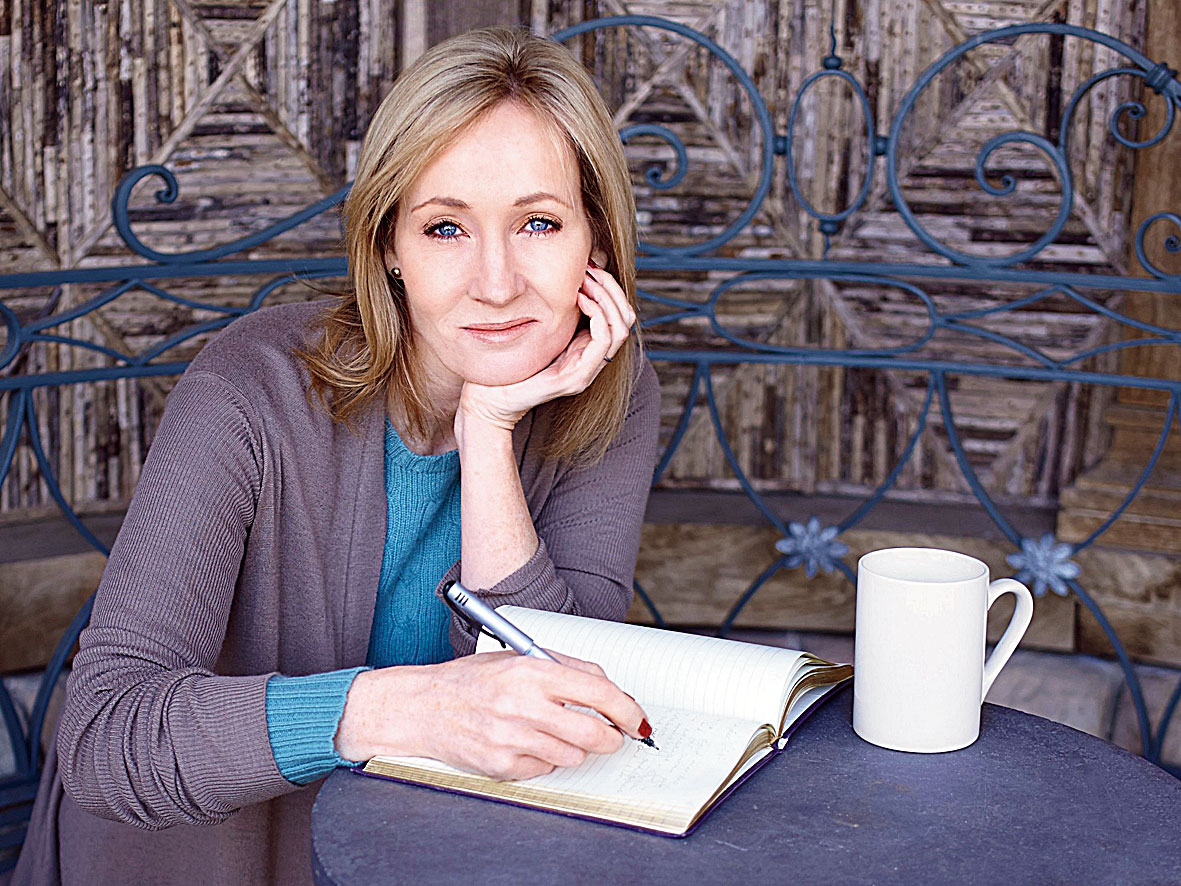J.K. Rowling on Wednesday said she was a survivor of domestic violence and sexual assault, as she explained why she felt so strongly about women’s rights.
The Harry Potter author was denounced as “anti-trans” over her defence of single-sex spaces and her comments about gender identity. This week she faced a backlash after taking issue with an article that referred to “people who menstruate” rather than “women”.
Stars including Daniel Radcliffe, who played Harry Potter in the films, and Eddie Redmayne, the star of Rowling’s Fantastic Beasts films, distanced themselves from her comments.
In response to the row, Rowling on Wednesday night published an essay in which she spoke of her first marriage to Jorge Arantes, a Portuguese journalist. She also referred to a serious sexual assault that happened in her 20s.
“This isn’t an easy piece to write... but I know it’s time to explain myself on an issue surrounded by toxicity,” she began. “I managed to escape my first violent marriage with some difficulty, but I’m now married to a truly good and principled man, safe and secure in ways I never in a million years expected to be. However, the scars left don’t disappear, no matter how loved you are, and no matter how much money you’ve made.”
Rowling married Arantes in 1992, after she moved to Portugal to teach English. Their daughter, Jessica, was born the following year, but by the end of 1993 they had split and she returned to Edinburgh, where she wrote the book that transformed her life. She married Neil Murray, a doctor, in 2001.
She said: “I’ve been in the public eye now for over 20 years and have never talked publicly about being a domestic abuse and sexual assault survivor.
“This isn’t because I’m ashamed those things happened to me, but because they’re traumatic to revisit and remember. I also feel protective of my daughter from my first marriage. I didn’t want to claim sole ownership of a story that belongs to her, too. However, a short while ago, I asked her how she’d feel if I were publicly honest about that part of my life, and she encouraged me to go ahead.”
Rowling, 54, said she felt great solidarity with trans women who have been victims of violence, despite what her detractors believe. She wrote: “I pray my daughters never have the same reasons I do for hating sudden loud noises, or finding people behind me when I haven’t heard them approaching.
“If you could come inside my head and understand what I feel when I read about a trans woman dying at the hands of a violent man, you’d find solidarity and kinship. I have a visceral sense of the terror in which those trans women will have spent their last seconds on Earth, because I too have known moments of blind fear when I realised that the only thing keeping me alive was the shaky self-restraint of my attacker.”
Rowling did not identify the man who sexually assaulted her, but said: “I spent much of Saturday in a very dark place inside my head, as memories of a serious sexual assault I suffered in my 20s recurred on a loop. That assault happened at a time and in a space where I was vulnerable, and a man capitalised on an opportunity. I couldn’t shut out those memories. I was finding it hard to contain my anger and disappointment about the way I believe my government is playing fast and loose with women’s and girls’ safety.”
She added: “I haven’t written this essay in the hope that anybody will get out a violin for me... I’m a survivor, certainly not a victim.”
The trans row blew up this week after Rowling highlighted an online article that discussed “people who menstruate”. She wrote on Twitter: “I’m sure there used to be a word for those people. Someone help me out. Wumben? Wimpund? Woomud?”
Rowling previously voiced support for Maya Forstater, who lost her job for allegedly “transphobic” tweets. Although she received an “avalanche” of emails and letters from people worried about the erosion of women’s and girls’ rights, Rowling said she had been bombarded with threats from trans activists.
The Daily Telegraph










